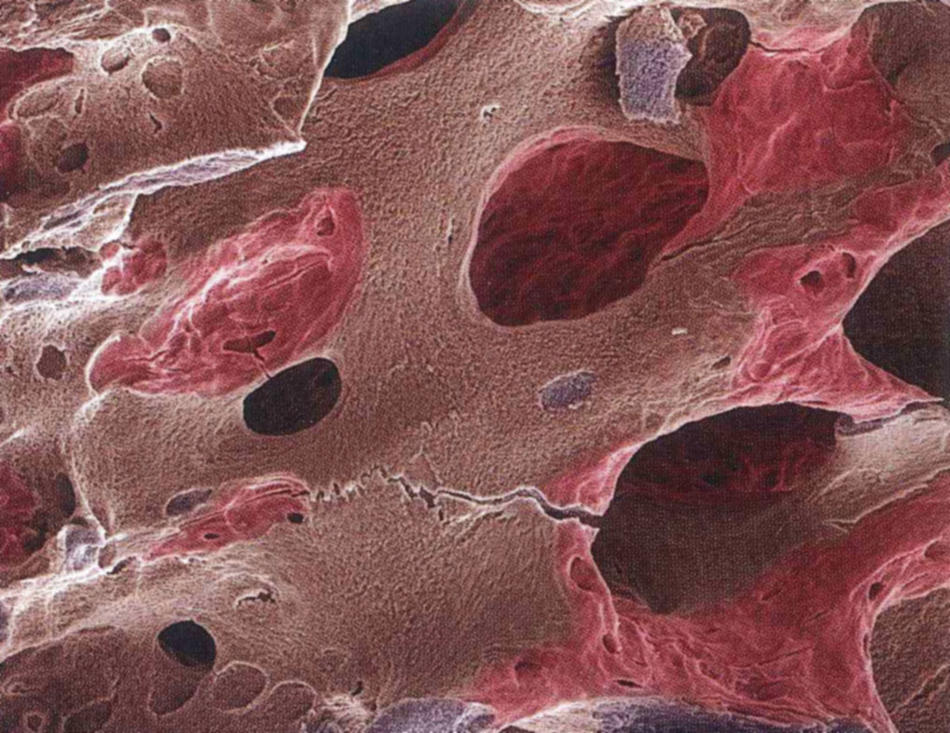Bones are constantly regenerating: as their cells deteriorate and are absorbed back into the bloodstream, new cells replace the old ones. In people who suffer from osteoporosis, the body can't produce new bone fast enough, leaving the skeleton porous and brittle.
Until now, scientists thought they had identified all of the major hormones that control this regeneration process. But Columbia geneticist Gerard Karsenty says that a type of serotonin known for its role in heart development also instructs the skeleton to slow production of new bone cells. Karsenty and his research team say that by shutting down production of this serotonin, which is made in the small intestine, they've been able to reverse osteoporosis in mice. The study appeared in the November 28 issue of the journal Cell.
"It's a groundbreaking paper," said Christopher Gallagher, an osteoporosis specialist and professor of medicine at Creighton University, in the New York Times on November 27. Ronald N. Margolis, an endocrinologist at the National Institute of Diabetes and Digestive and Kidney Diseases, added: "I was astonished. My jaw was dropping."
Karsenty's research team made the discovery while studying the gene LRP5, which scientists have known for years influences bone production. Karsenty assumed, as had most scientists, that a dangerous LRP5 mutation that stops bone from growing originates inside the skeleton. But when Karsenty's team extracted bone cells from osteoporosis-afflicted mice and grew new bone mass in a petri dish, the bone developed healthfully. This suggested that the LRP5 mutation was coming from somewhere else in the animal's body, not from within the bone. The scientists then detected very high levels of serotonin in the sick mice. When they injected the serotonin into the bone in the petri dish, the bone stopped growing. They soon confirmed that LRP5 in the gut was affecting serotonin levels.
Karsenty hopes this discovery will lead to the development of osteoporosis treatments that generate new bone. Most osteoporosis drugs today simply prevent the breakdown of old bone; only one drug creates new bone and it's suspected to cause cancer and so is administered only to people with the most severe forms of osteoporosis. "We need something to build bone, not just prevent or repair its loss," says Karsenty, who chairs the department of genetics and development at Columbia University Medical Center. "Osteoporosis is often diagnosed when the damage to bone is already significant, and fracture risk is high."



